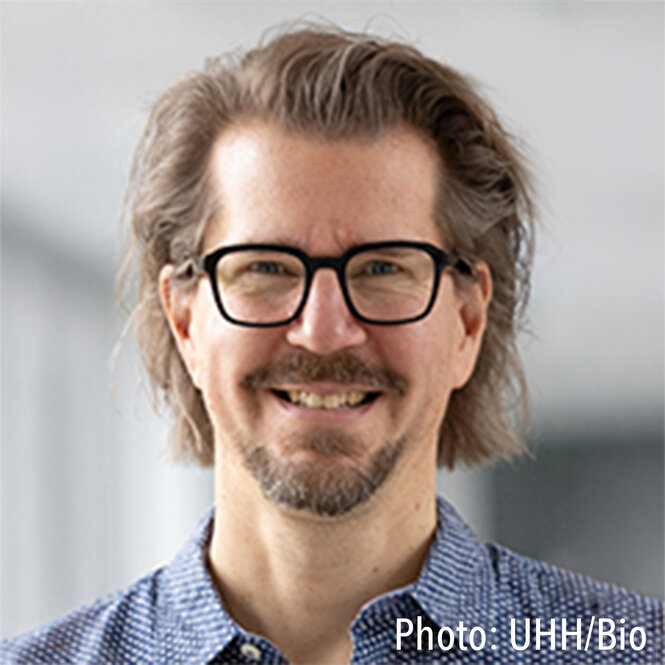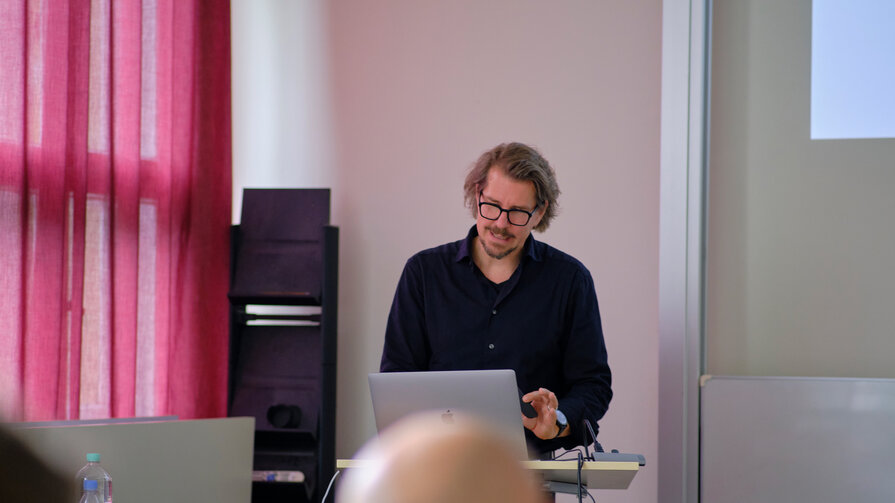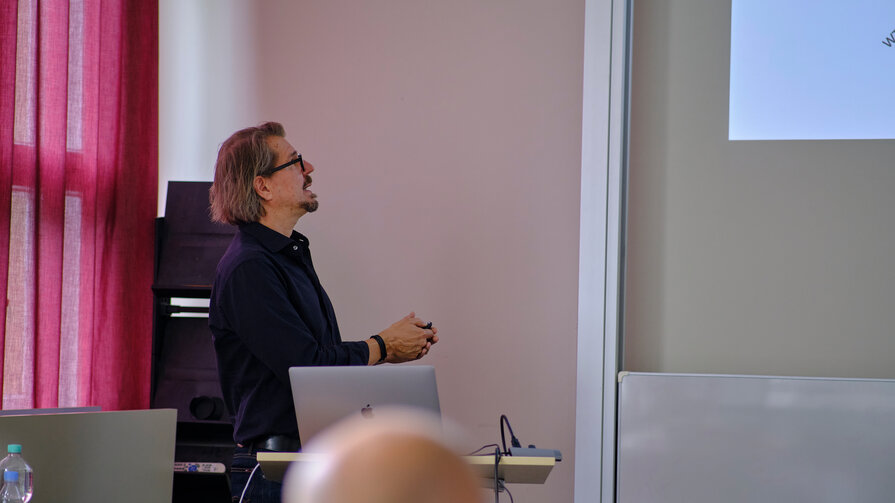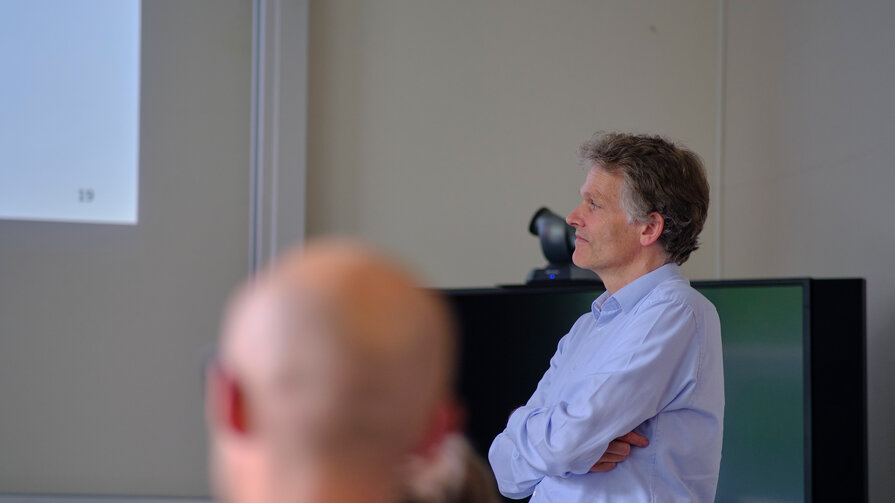Hosted by Christian Schmitz-Linneweber (HU)
Prof. Arp Schnittger
Universität Hamburg - Developmental Biology Group
Arp Schnittger is professor of developmental biology at the Universität Hamburg. His research delves into the fundamental processes of cell division, with a particular focus on plants as a model system to understand the evolution of regulatory mechanisms in eukaryotes. Recognizing the unique life history of plants, Arp Schnittger's work aims to uncover novel insights into cell cycle control, including DNA replication, damage response, and developmental programming. This research not only contributes to our understanding of basic biology but also provides a foundation for developing strategies to enhance agricultural productivity, such as boosting yield and improving stress resistance in crops.
A significant aspect of his research is the investigation of meiosis, a specialized cell division crucial for sexual reproduction and the generation of biological diversity. Meiosis plays a pivotal role in genome evolution and speciation, making its detailed understanding and potential modification highly relevant for biotechnological applications, especially in plant breeding. Despite its importance, many key aspects of meiosis and its underlying molecular machinery remain elusive. Arp Schnittger's research seeks to address these gaps, striving for a comprehensive understanding of meiotic mechanisms to facilitate the development of new breeding technologies.
In his talk 'Meiosis under heat – how to sort chromosomes in times of climate change' Arp Schnittger explored the importance of ambient temperature, one of the most crucial environmental parameters for growth and fertility of most living organisms. In the course of the current climate change, extreme weather events such as heat waves have increased dramatically, and even more extreme conditions are predicted for the near future. Thus, it is of growing importance to understand how organisms and especially plants, as the major food and fodder source, respond and counter battle heat stress effects to be able to breed for heat-resilient crops. Current work has shown that the reproductive life phase of plants is very sensitive to heat and an increase in temperature often leads to sterility, not least caused by severe effects on meiotic recombination and progression through meiosis, for instance by causing the formation of unreduced gametes resulting in polyploidization. While polyploidization is thought to represent a possible mechanism of a plant to withstand stresses, it typically reduces fertility due to genomic imbalances in developing seeds and causes chromosome segregation problems in subsequent generations. In this seminar, Arp Schnittger presented the recent advances of his department in the understanding of the molecular surveillance and control mechanisms of meiosis under heat. Notably, these mechanisms include the formation of heat stress granules, a form of bimolecular condensates driven by liquid-liquid phase separation.

On the 11th of June, we were delighted to welcome Arp Schnittger, whose visit was kindly initiated by Christian Schmitz-Linneweber. The day offered a rich opportunity for scientific exchange, collaboration, and community-building across several research groups. His visit began in the Rhoda-Erdmann House ("grüne Amöbe"), where Arp Schnittger met with Kerstin Kaufmann's group, who had the chance to present ongoing projects and explore potential connections with Arp’s research. From there, Christian Schmitz-Linneweber's group hosted the next part of the visit, continuing the lively discussions around shared topics in plant biology and molecular regulation. Arp Schnittger then gave a stimulating lecture in the Maud Menten Hall on the influence of ambient temperature on the growth and fertility of plants - particularly with regard to climate change - sparking engaging questions and exchanges with the audience. This was followed by a session with Christina Kühn, where further research synergies and future opportunities were explored.
The day concluded with a cosy dinner, allowing for informal conversations and reflections in a relaxed atmosphere.
We sincerely thank Arp Schnittger for his visit, his inspiring input, and the warm and open interactions throughout the day. Special thanks to Christian for organizing the visit, and to everyone who helped make this exchange so fruitful. We look forward to continued conversations and potential collaborations in the future.



